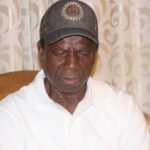By SUNDAY ODIBASHI
Electoral violence has constituted an indelible obstructive component of virtually all post-independence elections in Nigeria since1960. Rather than declining, electoral violence has been escalating in different forms which include killings, arson, ballot snatching and ballot stuffing, assault on voters by political thugs, in every successive election in the country.
Elections in the colonial era from 1922 under the Clifford’s Constitution, were non-competitive, not openly contested; the colonialists merely nominate people into the legislative councils, except the 1958/1959 general elections preparatory for independence in 1960.
Electoral violence in First Republic October 1, 1960 to January 15, 1966
The first conduction of elections by the emergent Nigerian leaders in 1964 after independence was marred by monumental violence.
The intractable upheaval in the Western Region snowballed into structural violence known as “operation wetie” after the 1964/1965 federal and regional elections. The structural violence was escalated by the conflicts between Chief Obafemi Awolowo, leader of the Action Group (AG), and Chief Samuel Akintola.
In the northern region, the Northern People’s Congress (NPC), led by Alhaji Ahmadu Bello, and the Northern Elements Progressive Union (NEPU), led by Alhaji Aminu Kano, including the Action Group were at loggerheads.
The uncontrollable fracas that trailed the 1964/1965 general elections in the Western Region was exacerbated by the conflicts between the NNDP/NPC and the AG-UPGA coalitions. Citizens were killed, massive property destroyed, many were injured. This was attributed to the stimulus for the military usurpation of political power on January 15, 1966, which obstructed the growth and development of the democratic regime, and abruptly terminated the First Republic.
Second Republic October 1, 1979 to December 31, 1983
The general elections in 1979 and 1983 in the Second Republic witnessed a carryover of the electoral violence of the First Republic. Snatching of ballot boxes at polling units, intimidation and threatening of voters, killings and inflicting physical injuries on citizens, arson, were rampant. Alhaji Shehu Shagari of the National Party of Nigeria (NPN) was declared winner of the presidential election in the 1979 and 1983 general elections, respectively.
The Westminister model of winner-takes-all made elections highly intense, desperate and intolerable of opposition.
The military junta struck again on December 31, 1983 after the elections that ushered the second tenure of the democratic regime on October 1, 1983.
Major General Muhammadu Buhari emerged head of state in January 1984.
The unborn Third Republic 1985 to 1998
The military regime led by Buhari was transplanted in 1985 by another military junta led by the Chief of Army Staff, Major General Ibrahim Badamosi Babangida. Babangida midwifed an electoral process that precipitated different versions of electoral violence in Nigeria, though, he made significant reforms introducing two-party system, Option 4 voting system, among others.
Tactical delays and suspicious plots for self-succession created array of civil society movements engaged in vehement agitation for end to military regime and democratization of the polity. Civil society advocacies and agitations were resisted with violent military actions. Lives were lost, some Nigerian citizens incarcerated while many others were forced into exile by the military regime.
Then, the June 12, 1993 presidential election presumed to be won by Chief M.K.O. Abiola of the Social Democratic Party (SDP) but annulled by General Babangida on July 23, 1993, triggered another session of electoral violence in Nigeria. The escalating violence and tension in the country compelled General Babangida to step aside on August 26, 1993.
The death of the head of state, General Sani Abacha, on June 8, 1998, brought in General Abdulsalami Abubakar on board who immediately commenced transition to democracy.
Contemporary democratic dispensation October 1, 1999 to 2020
President Olusegun Obasanjo was the first Nigerian leader who attempted to investigate incidence of electoral violence, including political killings when he established a Reconciliation Committee in 1999 headed by late Justice Oputa. Unfortunately, the findings and recommendations of the Oputa panel was never implemented.
The 1999 general elections came with uncertainties, skepticism of the durability of the emerging democratic regime. Electoral violence was minimal. Virtually, all stakeholders were coming onboard on relatively new templates.
Electoral violence became rampant in the 2003 general elections. The incumbent became desperate for secund tenures. Internal democracy was ignored which triggered intra-party conflicts that made supporters of politicians confront the other in violent outbursts. The desperation spilled over to inter party conflicts and conflagrations creating need for recruitment of political thugs for the purpose of electoral violence.
Winners of election appeared to be principal beneficiaries of electoral violence; thus, perpetrators are not punished for their acts of lawlessness. High profile individuals are not tried for electoral violence.
Chronicle of electoral violence without justice 1999 to 2020
Dr. Marshall Harry, Deputy National Chairman, South-South, of the All Nigeria People’s Party (ANPP), was murdered at his residence in Abuja on March 5, 2003. Dr. Harry was a political ally of the ANPP presidential candidate in the 2003 election, retired Major General Muhammadu Buhari. He had defected from the Peoples Democratic Party (PDP) in Rivers State.
Buhari was to commence his presidential campaign in Port Harcourt on March 8, 2003.
Marshal Harry had revealed that the ANPP on Tuesday, February 25, 2003, applied to the Rivers State Stadia Authority for permission to use the Liberation Stadium, Port Harcourt, for the flag-off of the ANPP Presidential Campaign Rally. The authority approved the request only on the payment N7.5 million – N2.6 million fee for use of the stadium and N5 million security deposit. Marshal Harry protested that same stadium was approved for the PDP at the cost of N800,000. Marshal Harry, however, made the payment on behalf of the party and presidential candidate, Buhari.
Before his death, Marshal Harry had petitioned the Commissioner of Police on threat to his life. This, he said, was ignored.
He was murdered on Wednesday when he visited Abuja to brief the ANPP leadership on the preparations and readiness for the Saturday presidential campaign. Till date, the incident remains one of the unresolved killings in Nigeria.
Other unresolved high-profile victims of electoral violence include:
Sunday Ugwu, a lawmaker representing Nkanu East Local Government Area, Enugu State, was killed on September 9, 1999. He was a victim of mistaken identity of his younger brother, Nwabueze Ugwu, a famous critic of former Enugu State Governor, Chmaroke Nnamani.
Former Governor James Ibori of Delta State escaped assassination on February 4, 2001, during crossfire of gunshots between two PDP factions.
A relation of Umar Akaaba, former Chairman of Okene Local Government Area, Kogi State, Momoh Lawal, was killed on March 5, 2001.
Violent outburst involving supporters of former Senate President Anyim Pius Anyim and supporters of Governor Sam Egwu of Ebonyi State on August 24, 2001, resulted in the death of four people in Abakaliki.
A member of the Osun State House of Assembly, Odunayo Olagbaju, was assassinated by gunmen in his hometown, Ile Ife, on December 21, 2001.
Minister of Justice, Chief Bola Ige, was assassinated in his bedroom in Ibadan, Oyo State, on December 23, 2001. There were insinuations that the Ige incident was towards a purportedly planned negotiation for the 2003 elections in the southwest.
Violent outburst at a PDP campaign led to the killing of three students in Effurun, Delta State, on March 7, 2002.
A female PDP leader in Odigbo Local Government, Ogun State, Janet Oladapo, was shot dead by gunmen on August 13, 2002.
PDP State Chairman in Kwara, Ahmed Pategi, and his Police security aide, were shot dead on a highway near Ilorin on August 15, 2002.
Gunmen killed Victor Nwankwo, on August 29, 2002. He was younger brother of Arthur Nwankwo, founder of Eastern Mandate Union (EMU), an opposition politician in Enugu State.
Barnabas Igwe, a popular critic of the Governor of Anambra State, branch Chairman of the Nigerian Bar Association (NBA) in the state, and his wife, Abigail, were killed on September 1, 2002, in Onitsha.
The treasurer of Akassa Local Government Area, Bayelsa State, John Nunu, was shot dead on September 26, 2002, by unknown gun men.
Prof. Chimere Ikoku, a former Vice Chancellor of UNN was killed on October 20, 2002, in his residence.
A PDP governorship aspirant, Dele Arojo, was murdered in Lagos November 25, 2002, by unknown gunmen.
Alhaji Isyaku Muhammad, National Vice Chairman, United Nigeria Peoples Party (UNPP), North West was killed in December 2002 by gun men.
On January 18, 2003, three people were killed in a violent clash between ANPP and PDP supporters at Bularafa, Dokini area in Yobe State
Ogbonnaya Uche, an ANPP senatorial candidate, died on February 10, 2003, two days after he was attacked at his residence in Owerri, Imo State.
About seven people were declared dead in a conflagration between PDP and ANPP supporters in Jato-Aka community in Benue State on February 18, 2003. The conflagration was erupted after an attack on a security guard at the residence of Paul Unongo, ANPP governorship candidate in Benue State.
Theodore Agwatu, principal secretary to the Imo State governor, was killed at his residence Owerri, Imo State, on February 22, 2003.
Speaker of the Borno State House of Assembly, Rt. Hon. Inuwa Kubo, survived assassination attempt on February 23, 2003.
An Alliance for Democracy (AD) stakeholder in Ekiti State, Mrs. Emily Omope (a.k.a Thatcher), was attacked with acid bath in December 2002. She died at the UCH Ibadan on March 3, 2003.
Before the ANPP Deputy National Chairman, south-south, Marshall Harry, was killed at his residence in Abuja, on March 5, 2003, he had petitioned the Police on alleged plot by Governor Peter Odili of Rivers State to disrupt the ANPP presidential campaign of March 8, 2003, in Port Harcourt.
Marshal Harry had in the letter dated March 3, 2003, protested the arrest, intimidation, harassment and maiming of ANPP officials, candidates and supporters by thugs of Governor Odili of the PDP.
He also complained of the detention of Chief Ibe Eresia Eke, an ANPP National Officer on false charges of attempted murder; and he was refused bail four weeks.
Other victims of electoral violence in Police detention included Deacon Elekwa, ANPP candidate for House of Representatives for Emohua/lkwerre constituency, arrested and detained three days without bail;
Monday Nyoneh, ANPP Chairman in Tai Local Government Area, arrested and detained without bail on false charge of attempted murder; I. Benjamin, ANPP Ward 11 Chairman in Delga Local Government Area, detained by the Police in Degema Local Government Area; etc.
ANPP, National Chairman, Don Etiebet, had in the lamentation of the death of Marshal Harry, recalled that in the same period in Rivers State, Monday Udo, an ANPP member, was killed at his residence in Port Harcourt, adding that assassination attempt was made on Ogwu Ibolo, ANPP Local Government Chairman in Rivers State.
Moreover, armed men invaded the office of the ANPP Deputy Chairman of the Campaign flag-off Committee, Chief G. O. T. Minimah, in Port Harcourt on March 4, 2003, while he was away. The assailants left a note for him, threatening his life.
The Human Rights Watch in its report indicated that between April and May 2003, nearly 100 persons were killed, with many injured in the general elections into federal and state offices in Nigeria.
The Transition Monitoring Group (TMG), a coalition of about 90 Civil Society groups, in its 2003 general elections report, decried the high incidence of violence during the elections.
Engr. Funsho Williams was killed at his residence, 34A, Corporation Drive, Dolphin Estate, Ikoyi, on July 27, 2006. He was a PDP governorship in Lagos for the 2007 general elections.
Some suspects were arrested and arraigned before Justice Adeniyi Adebajo of a Lagos High Court, Igbosere, Lagos, on March 1, 2013. The suspects were identified as Bulama Kolo, Musa Maina, David Cassidy, Tunani Sonani, Mustapha Kayode and Okponwasa Imariabie, being prosecuted for alleged conspiracy and murder of Funso Williams. The case, however, evaporated after some time.
Further report indicated that three governorship candidates were killed between June and August 2006. Getting close to the April 2007 general elections, political killings, bombings, kidnapping, and violent clashes were rampant between supporters of several candidates of the various political parties.
There was rising tension in the build up to the 2011 general elections. President Goodluck Jonathan had consistently warned against violence and bloodshed.
However, Akwa Ibom State was a theatre of war, political thugs unleashed violence on the Goodluck/Sambo Campaign office on March 22, 2011 in Uyo. In that mayhem, 200 brand new Peugeot 307 cars; 500 brand new tricycles, as well as the Goodluck/Sambo Campaign office were set ablaze. More so, Fortune International High School established by Senator Aloysius Etok, was burnt while school children were in their classes; more than 20 Toyota Hiace buses purchased for the PDP and Governor Godswill Akpabio 2011 Campaign Organization, nine Hilux jeeps belonging to the Akwa Ibom State Government were destroyed.
Abuja appointed a Presidential Committee of Inquiry to conduct investigation into the remote and immediate causes of the electoral violence that culminated into that magnitude of damages, and recommend how to avert repeat of such political violence during elections in Akwa Ibom State.
Though, the 2011 general elections were widely accepted both within Nigeria and in the international community to be free, fair and transparent, however, announcement of the presidential election result by the Independence National Electoral Commission (INEC), declaring President Goodluck Jonathan of the PDP winner, triggered violence in northern Nigeria because a particular candidate lost the presidential election. The states where youths went on rampage included Bauchi, Yobe, Borno, Kaduna, Kano, etc. The fracas culminated into the death of 10 National Youth Service Corps members.
Furthermore, the Human Rights Watch in its 2011 elections report indicated that the post-election violence displaced over 65,000 persons. Also, the Nigerian Red Cross Society in its report indicated that the 2011 post-election violence displaced 48,000 persons in 12 states.
Global mediations to contain electoral violence in 2015 elections
In the preparation for the 2015 general elections, there were noticeable desperation from leaders of the emergent mega party, the All Progressives Congress (APC), for victory, which generated fears of threats of post-election violence.
However, President Goodluck Jonathan who in the 2011 elections advocated “One Man, One Vote” had declared that his ambition is not worth the blood of any Nigerian.
On the rescheduling of the commencement of the elections by the INEC based on reports of insecurity in northeast Nigeria, the APC presidential candidate, Muhammadu Buhari, hosting the President of Malawi, Leader of the Commonwealth Election Observers Group, Dr. Bakili Muluzi, had stated in a media interaction that further rescheduling of the March 28 election new date would stimulate “a civilian and military coup’’.
Internal and international statesmen mediated to forestall violence at all stages of the 2015 general elections.
The US Ambassador to Nigeria held consultation meeting with leading presidential candidates, encouraged the signing of Memorandum of Understanding towards peaceful elections. This was extended to governorship candidates in several states.
Eminent persons from the West African sub-region, encouraged the 14 presidential candidates and Chairmen of their political parties to sign accord for peaceful election under the supervision of Chief Emeka Anyaoku, former Secretary General of the Commonwealth of Nations, late Kofi Annan, former Secretary General of the United Nations (UN).
Moreover, the National Peace Committee (NPC) was established, led by former Head of State, General Abdusalami Abubakar, Chairman, which had venerable Bishop Mathieu Kukah of the Sokoto Catholic Diocese, and other prominent Nigerians as members. The Committee also encouraged and supervised peace accord signed by the presidential candidates.
Despite the accord, there were still pockets of skeletal violence in some parts of the country. Besides the Boko Haram terrorism in the northeast, CLEEN Foundation Security Threat Assessment report in March 2015 indicated there was red alert of security threat in 15 states. CLEEN Foundation also disclosed that the National Human Rights Commission (NHRC) Pre-Election Report indicated that more than 58 persons were killed before the 2015 general elections.
Furthermore, INEC had disclosed that 66 violent incidence were recorded in the buildup to the 2015 elections. The Commission highlighted that violence occurred in Rivers State -16 incidence; Ondo – 8 incidence; Cross Rivers – 6; Ebonyi -6; Akwa Ibom – 5; Bayelsa – 4; Lagos and Kaduna 3, respectively; Jigawa, Enugu, Ekiti – 2 respectively; Katsina, Kogi, Plateau, Abia, Imo, Kano and Ogun – one incident respectively.
More so, The European Union Election Observation Mission in its report indicated that inter-party conflagrations, invasion of polling units by thugs, led to the death of about 30 persons on the April 11, 2015 Election Day.
President Goodluck Jonathan adhered to his principle: “my ambition is not worth the blood of any Nigerian,” to neutralize potential electoral violence on the outcome of the 2015 presidential election,
when he called Muhammadu Buhari, APC candidate, congratulated him on his victory in the election at 5.15p.m. on Monday, March 30, 2015, about 10 hours
before INEC announced the official result or declaring Buhari winner of the election. Buhari had 15,424,921 votes while Jonathan had
12,853,162 votes.
Before the president’s call to Buhari, the Minister of Niger Delta Affairs, Godsdey Orube, had made an outburst at the national collation centre in Abuja, accused INEC Chairman, Prof. Attahiru Jega, of alleged compromise of the presidential election and biases in announcing the election result.
Jonathan, however, focused on his principles and ensured peaceful transition and handover of power.
The 2019 general elections had a planned premeditated institutional electoral violence. This reflected in the ‘incriminating’ plots for the removal of the Chief Justice of Nigeria (CJN), Justice Walter Onnoghen which subsequently had a multiplier effect on the judgement of the presidential election petitions and others in the judiciary. There were also other manifestations of electoral violence like the burning of electoral materials stores of in some states, Plateau for instance; attack and burning of materials and INEC vehicles as in Akwa Ibom State, etc.
In the governorship election, a commissioner in Kano State was noticed to have invaded a collation centre, scattered the ballots, chewed some ballot papers, obstructed counting of votes. INEC cancelled the result of that centre, and in addition to few other centres, declared the governorship election inconclusive. The PDP was leading in the obstructed governorship election. The supplementary election was conducted, and the APC was declared winner. The commissioner was not prosecuted but rather ‘rewarded’ with his party government in the outcome of the obstructed poll.
Violence trademark in isolated elections
The Women Leader of the Peoples Democratic Party (PDP) in Kogi State, Salome Abuh, was burnt in her residence by political thugs in the November 16, 2019, governorship election.
The Commissioner of Police in Kogi State, Akeem Busari, had paraded six suspects in Lokoja, who he said were arrested on November 22 by a combined team of the police and local vigilantes. The suspects were identified as Ocholi Edicha, Adamu Haruna, Onu Egbunu, Musa Alidu, Attai Haruna Egwu and Attah Ejeh.
The CP identified Ocholi Edicha as leader of the thugs that burnt Mrs. Abuh at her residence in Ochadamu, Ofu Local Government Area, Kogi State.
On the election day in Kogi State, there were reports of armed thugs storming polling units, some allegedly being flown in helicopter shooting aerially and dispersing voters from polling units.
None of these cases was thoroughly prosecuted for sanctions.
In Bayelsa State, events were no different in the isolated governorship election.
In the September 19, 2020, governorship election in Edo State, there were incidence of shootings near the Oba Palace and other parts of the state by political thugs.
The October 10, 2020, governorship election was no exception. Shootings, clashes between supporters of candidates or parties were in vogue, leading to interventions by the State Security Service (SSS) in Akure and the environs to restore law and order.
Generally, electoral violence in Nigeria are often forgotten at the end of every elections. The emergent winners appear to be principal beneficiaries, thus, do not consider it imperative to conduct proper investigations or prosecution of perpetrators. The INEC seemingly rewards perpetrators of electoral violence when outcome of the elections favours the incumbent.
You may be interested

UCL: Atletico Madrid Will Come Out Stronger Against Borussia Dortmund –Simeone
Webby - April 16, 2024Atletico Madrid coach Diego Simeone has disclosed that the team has a stronger game plan to overcome Borussia Dortmund in…

7 Players Who Merit Super Eagles Call-up For Next 2026 W/Cup Qualifiers
Webby - April 16, 2024The Super Eagles will take on South Africa and Benin Republic in the 2026 FIFA World Cup qualifiers in June.After…

The Hidden Truth That Led To Killing Of 17 Soldiers In Okuama Delta State
Webby - April 16, 2024A feud between an illegal oil bunker, Endurance Okodeh alias Amangbein and a sophisticated cartel of powerful illegal oil bunkers…

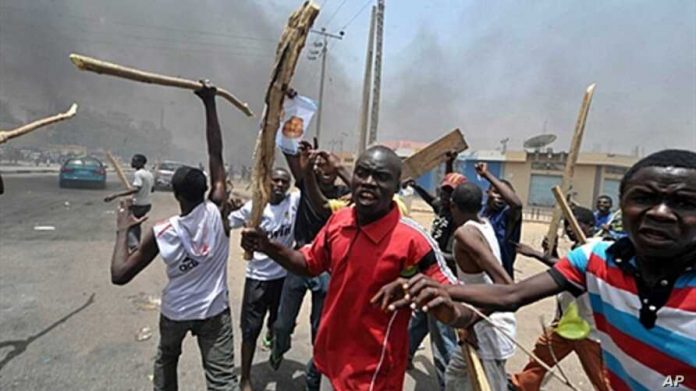
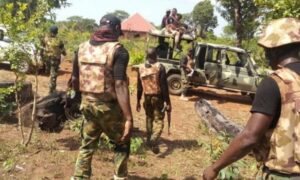
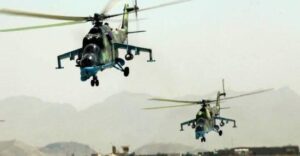
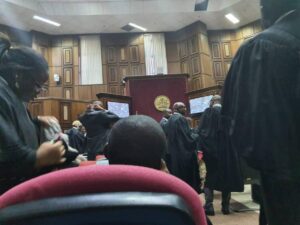
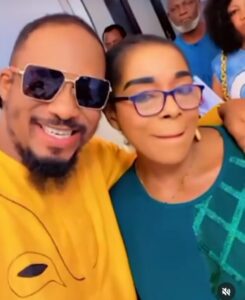





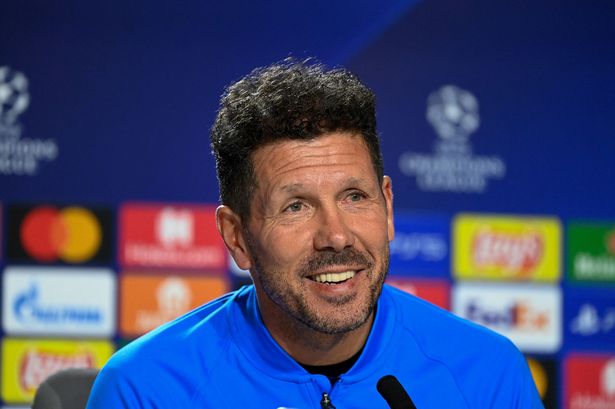

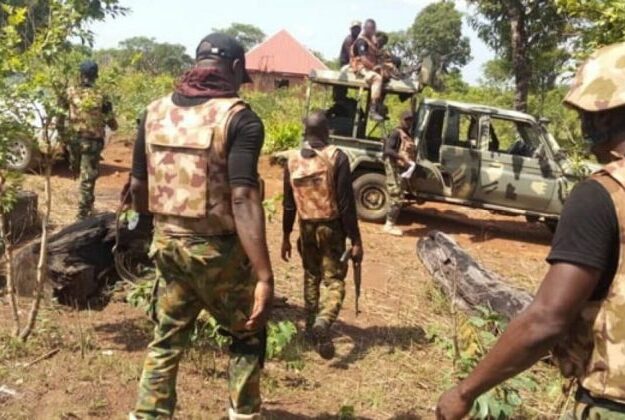
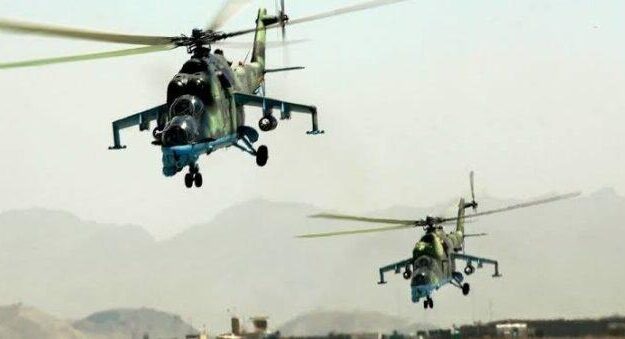
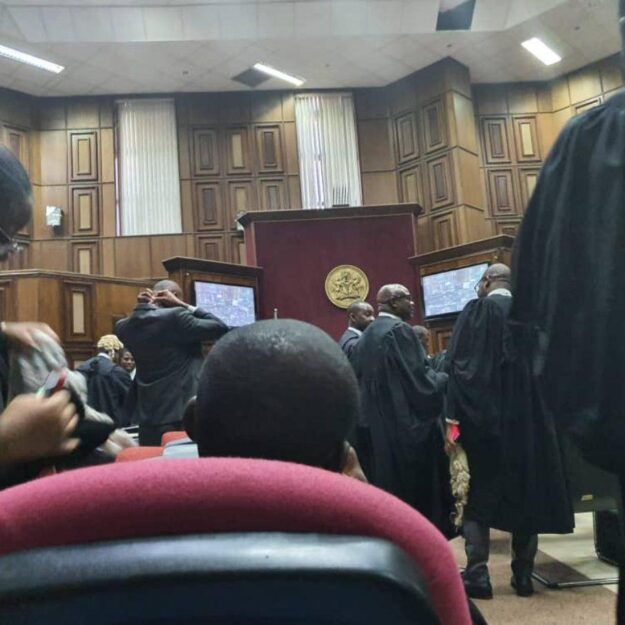
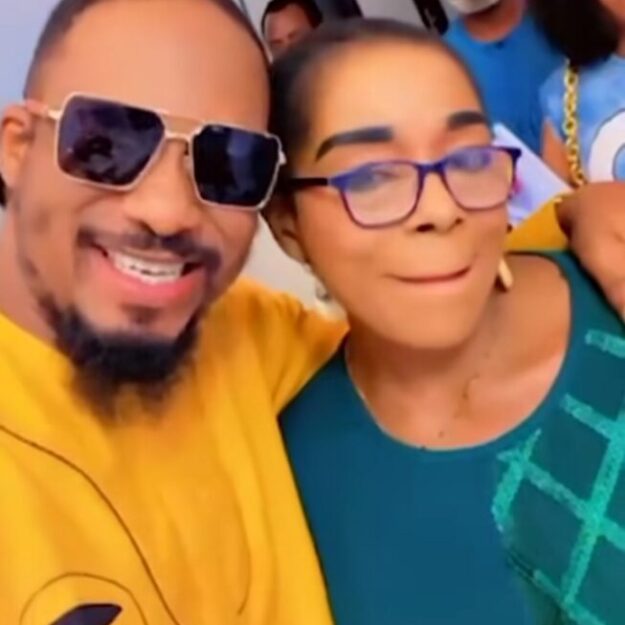
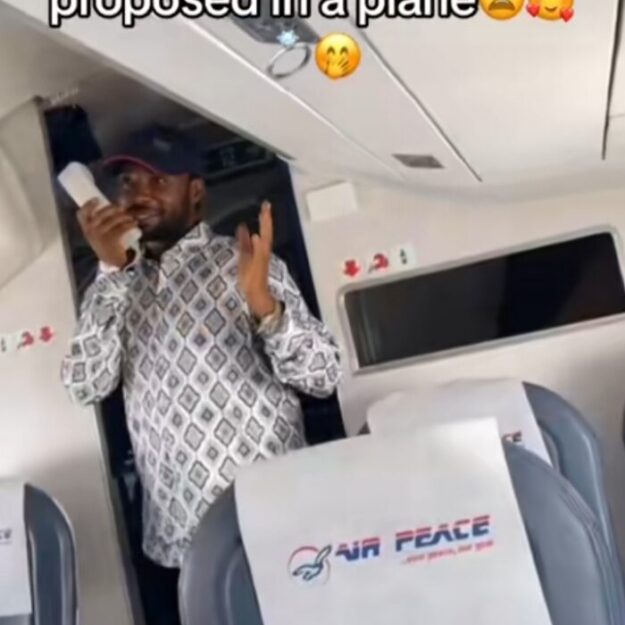

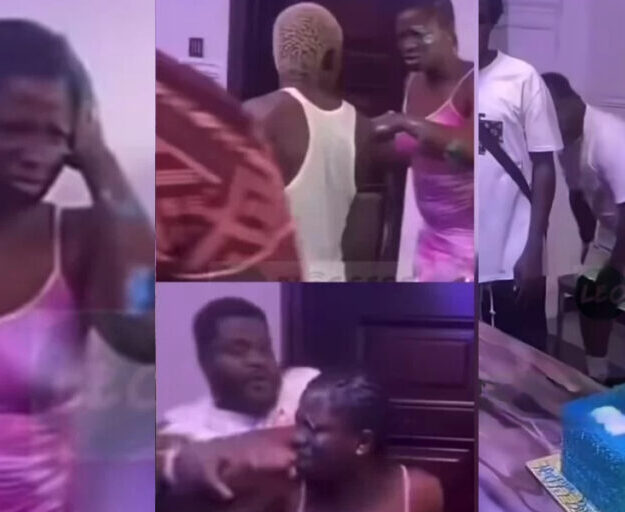


![American Pastor, David Wilson Seen Eating The Box Of Woman Who Isn’t His Wife [Video]](https://onlinenigeria.com/wp-content/uploads/2019/10/american-pastor-david-wilson-seen-eating-the-box-of-woman-who-isnt-his-wife-video-150x150.jpg)




